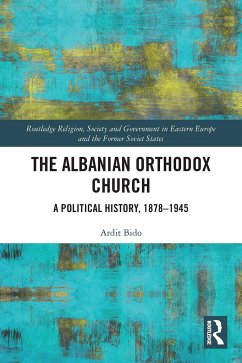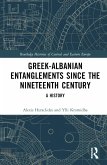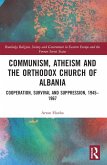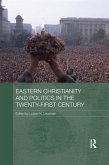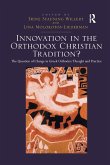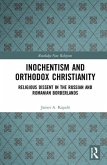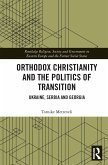Religion in Albania has had a complicated history, with Orthodoxy, Bektashi and Sunni Islam, Catholicism coexisting throughout much of the history of this Balkan nation. This book traces the rise of the Albanian Orthodox Church from the beginnings of Albanian nationalist movements in the late nineteenth century until the end of the Second World War and the Communist takeover. It examines the struggles of the Albanian state and Church to establish the Church's independence from foreign influence amid a complex geopolitical interplay between Albania, neighbouring Greece and its powerful Ecumenical Patriarchate; the Italian and Yugoslav interference, and the shifting international political circumstances. The book argues that Greece's involvement in the Albanian "ecclesiastical issue" was primarily motivated by political and territorial aspirations, as Athens sought to undermine the newly established Albanian state by controlling its Orthodox Church through pro-Greek bishops appointed by the Patriarchate. With its independence finally recognized in 1937, the Albanian Orthodox Church soon faced new challenges with the Italian, and later German, occupation of the country during the Second World War: the Church's expansion into Kosovo, the Italian effort to place the Church under papal authority, and, the ultimate threat, the imminent victory of Communist forces.
Drawing on a wide range of unpublished sources from archives in Albania and Greece, Ardit Bido's book provides a fascinating journey into the interplay between Orthodox Christianity, nationalism and political power in Albania. His meticulous and thought-provoking study focuses on key events and religious and political figures in the making of an independent Albanian Orthodox Church. The book is summarised in a key sentence, as Bido has eloquently argued: 'the newly established Albanian nation desired to create its own symphony between Church and state in the hope of consolidating the nation-state'. This is the first detailed study on the Albanian Orthodox Church challenging the relationship between Orthodox churches and state authorities, and more broadly, between religion and nationalism in South-eastern Europe. - Lucian Leustean, Reader in Politics and International Relations, Aston University, United Kingdom
One of the best analysis of the history of the Albanian Orthodox Church and the fight for autocephaly. It is a succinct, readable and learned study based on primary sources of a "peripheral" Orthodox Church in a predominantly Muslim nation. The study is a gem for the specialist in Eastern Christianity, the student of Eastern Orthodoxy, and all those interested in the history of modern autocephalies and in the political history of Balkans in general. Highly recommended. - Ines Angeli Murzaku, Professor of Ecclesiastical History and Director of Catholic Studies Program, Seton Hall University, New Jersey, USA
Ardit Bido's monograph is a special historiographical contribution dedicated to the issue of autocephaly of the Albanian Orthodox Church. The innovative approach analyses crucial periods of the troubled path of the foundation on national basis of the Albanian Orthodox Church: the origins within the Rilindja movement (1878 -1918); the decade 1918-1929 of the affirmation and proclamation of Albanian ecclesiastical autonomy; the twenty years (1929-1945) of the consolidation preceding the Communist dictatorship. Of each of the three phases identified, Bido carries out an in-depth critical scan, which allows his historical and political reconstructions to be embedded in an interpretative framework that is as objective as it is convincing. The results of this research, thanks to the use of various archival sources, will undoubtedly constitute the subject of further debate among contemporary historians. - Matteo Mandala, Full Professor of Albanology and Director of the Albanology Laboratory, University of Palermo, Italy
One of the best analysis of the history of the Albanian Orthodox Church and the fight for autocephaly. It is a succinct, readable and learned study based on primary sources of a "peripheral" Orthodox Church in a predominantly Muslim nation. The study is a gem for the specialist in Eastern Christianity, the student of Eastern Orthodoxy, and all those interested in the history of modern autocephalies and in the political history of Balkans in general. Highly recommended. - Ines Angeli Murzaku, Professor of Ecclesiastical History and Director of Catholic Studies Program, Seton Hall University, New Jersey, USA
Ardit Bido's monograph is a special historiographical contribution dedicated to the issue of autocephaly of the Albanian Orthodox Church. The innovative approach analyses crucial periods of the troubled path of the foundation on national basis of the Albanian Orthodox Church: the origins within the Rilindja movement (1878 -1918); the decade 1918-1929 of the affirmation and proclamation of Albanian ecclesiastical autonomy; the twenty years (1929-1945) of the consolidation preceding the Communist dictatorship. Of each of the three phases identified, Bido carries out an in-depth critical scan, which allows his historical and political reconstructions to be embedded in an interpretative framework that is as objective as it is convincing. The results of this research, thanks to the use of various archival sources, will undoubtedly constitute the subject of further debate among contemporary historians. - Matteo Mandala, Full Professor of Albanology and Director of the Albanology Laboratory, University of Palermo, Italy

